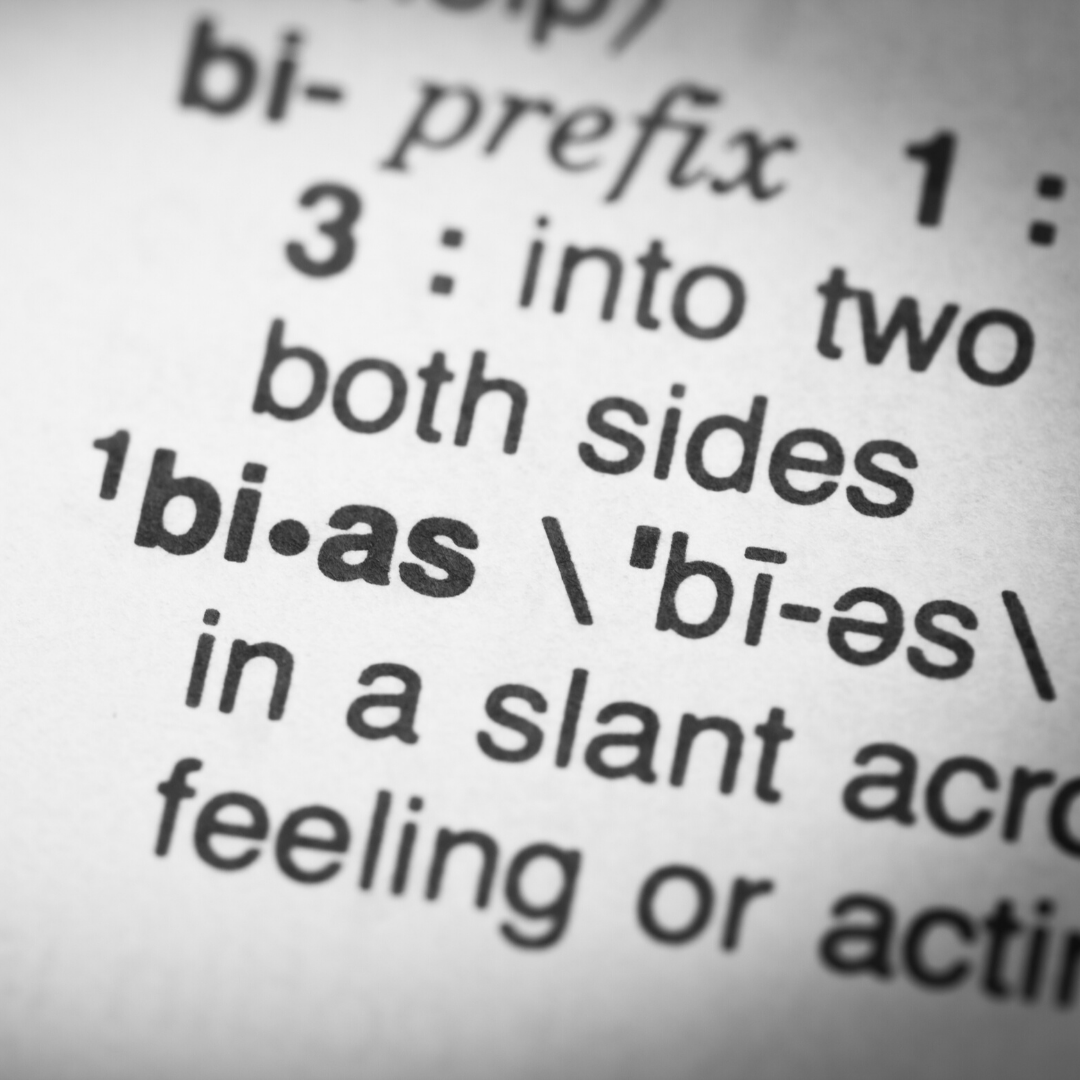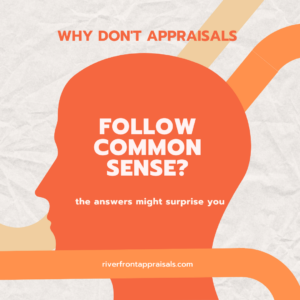
Property Taxes Just Went Up? We’ve Got You Covered!
It’s reassessment season for most folks in our area. Homeowners

Bias. The word itself is just ugly, isn’t it? It’s negative. It connotes everything that someone should not be. To be labeled as biased is not something anyone attains to. For an appraiser, it’s no different. In fact, if an appraiser is biased in any way, they are no longer an appraiser. In this blog post, we’ll take a look at what it means to be biased as an appraiser, why we must never show bias, and how it’s helpful to have an appraiser who is absolutely independent and unbiased.
This is part six in our ongoing series about promoting public trust. As appraisers, we are bound by standards called USPAP. And one of the main tenants of USPAP is our Ethics Rule. As part of the Ethics Rule, USPAP states that an appraiser “must not perform an assignment with bias.”
So what is bias from an appraiser’s perspective? Again, according to USPAP, bias is “a preference or inclination that precludes an appraiser’s impartiality, independence, or objectivity in an assignment. I’ve written about this many times in the past. An appraiser must always be impartial, independent and objective. Unbiased. The second we show bias, we throw all those characteristics – what makes appraisers unique and extremely important in the real estate valuation world – out the window.
In a typical appraisal assignment, we certify many things about what we’ve done and not done. One of those certifications states that
“I have no present or prospective interest in the property that is the subject of this report, and I have no present or prospective personal interest or bias with respect to the participants in the transaction. I did not base, either partially or completely, my analysis and/or opinion of market value in this appraisal report on the race, color, religion, sex, age, marital status, handicap, familial status, or national origin of either the prospective owners or occupants of the subject property or of the present owners or occupants of the properties in the vicinity of the subject property or on any other basis prohibited by law.”
That covers a lot, doesn’t it? Not only are we saying we don’t have skin in the game (I can’t appraise my own house, for example), we’re also certifying that we aren’t showing partiality to anyone who currently lives in the home, or who may be purchasing the home, or even those in the neighborhood! That’s quite an exhaustive list. No stone is left unturned in this certification. We’re not showing any bias toward any group of people, for any reason.
Can I appraise my family member’s home?
After being in the business even just a little while, eventually, an appraiser could get a call to appraise a home of someone they know. Or, maybe they get an order to appraise a family member’s home. Since the majority of appraisal assignments are done randomly (more on that later), someone could even get an assignment to appraise their own home, just like I did several years ago! So what happens when a family member or friend is getting their home appraised, and I get that order? Of course, USPAP has something to say here about bias:
“If the appraiser’s interest in the property or the parties involved in the assignment prevents the appraiser from providing an unbiased service, then the appraiser must not perform the assignment because it would be in violation of the ETHICS RULE and parts of the appraiser’s certification in Standards Rule 2-3.”
Notice that USPAP doesn’t say I 100% cannot appraise my sister’s home. It merely states that if my “interest in the property or the parties involved…prevents [me] from [being] unbiased”, then I have to turn down the assignment. Could I appraise my sister’s home and be unbiased? What about my best friend? A Co-worker? The answer is yes, I could, but it would be so incredibly difficult to prove that I’m being unbiased that I’d rather not even try. You see, we’re all human. We all want what’s best for ourselves and the ones we love. I recently got an appraisal assignment to appraise a home my pastor was thinking about purchasing. Of course, I’d want him to pay as little as possible because that would be really great for him and his family. So I couldn’t be entirely unbiased in my conclusions, even if I tried to be. I could say I’m being unbiased when I get an order to appraise my cousin’s house, but I have a hard time separating what I want and desire for my family, and what my work demands of me – absolute independence, objectivity, and impartiality. So I would turn down that assignment.
Can an appraiser act as an advocate?
USPAP FAQ 365 asks (in part):
“A client feels that her property is over-assessed by the county. She’s asked me to perform a tax consulting service that involves advocacy for her position…This assignment would not include an appraisal…Is this service allowed under USPAP? If not, can I perform this assignment outside of USPAP?
And here’s what USPAP has to say in response:
“You may not perform this assignment under USPAP. An appraiser, in appraisal practice, may not be an advocate. The Conduct section of the ETHICS RULE states:
An appraiser must perform assignments with impartiality, objectivity, and independence, and without accommodation of personal interests.
An appraiser:
valuation services performed by an individual acting as an appraiser, including but not limited to appraisal or appraisal review.
So the only way I could honor my client’s request to advocate for her position, is if I act not as an appraiser. I take my appraiser hat off and now I’m just a guy trying to help someone out, and I’m not providing any appraisal services, I’m not acting as an appraiser, and therefore I don’t have to follow USPAP.
So If you think your taxes are too high and you want to hire us for tax consulting purposes, we can complete an appraisal, but we can’t be an advocate. Since most taxing jurisdictions require an actual appraisal to reconsider your property’s value, this will likely be your best course of action.
Finally, as we wrap up our discussion on bias, I’d be remiss not to mention – albeit briefly – racial bias. I’ve already pointed out what USPAP says about race and the appraisal process. Namely, that an appraiser cannot discriminate in any way on the basis of race. And yet, earlier this year, representatives of Presidential hopeful Joe Biden, referencing a study by the Brookings Institute which accused appraisers of undervaluing properties in black neighborhoods, wrote that Mr. Biden would
“…tackle racial bias that leads to homes in communities of color being assessed by appraisers below their fair value. Housing in communities primarily comprised of people of color is valued at tens of thousands of dollars below majority white communities even when all other factors are the same, contributing to the racial wealth gap. To counteract this racial bias, Biden will establish a national standard for housing appraisals that ensures appraisers have adequate training and a full appreciation for neighborhoods and do not hold implicit biases because of a lack of community understanding. An objective national standard for appraisals will also make it harder for financial institutions to put pressure on appraisers to their benefit.”
However, Mr. Biden appears to be forgetting about this little document we’ve been discussing on this blog. USPAP. It’s our national standard. USPAP states that an appraiser must be competent to appraise (there’s your “community understanding”), and there are other Federal lending guidelines in place that promote appraiser independence, so that lenders cannot pressure appraisers. Further, Craig Morley, president of the National Association of Appraisers wrote in response:
“Appraisers do not “set” values or create markets; they merely measure, reflect, and report the actions of market participants.”
At the end of the day, the hallmark of a good appraiser is that they are independent, objective, and impartial. Unbiased. It’s why people call us all the time and say, “I just want to know what the true market value of my home is.” They know that an appraiser isn’t collecting a commission, or charging taxes, or benefiting from the refinance or sale of the home. And, if we have in any way, an interest in the property, then we shouldn’t appraise it. If we cannot be unbiased in our conclusions about the neighborhood, occupants, or any other aspect of the assignment regarding race, religion, marital status, age, etc etc, then we need to decline the assignment. This is how appraisers can “maintain and promote public trust”. This is the goal of USPAP and the goal of our series in this blog.
If you’ve ever been the subject of bias in any way, on behalf of all appraisers, I apologize. Bias has no place in our profession. And, if you feel that you’ve had an unfair appraisal – either too high or too low – give us a call for a second opinion. We’d be happy to help. At Riverfront Appraisals, we take our appraisal standards very seriously. We believe that everyone is entitled to an independent, objective, and impartial appraisal. Call us today for yours.
Helping homeowners navigate the appraisal process,
Ryan Bays, SRA, AI-RRS
[bctt tweet=”If we cannot be unbiased in our conclusions about the neighborhood, occupants, or any other aspect of the assignment regarding race, religion, marital status, age, etc etc, then we need to decline the assignment. This is how appraisers can “maintain and promote public trust”. This is the goal of USPAP and the goal of our series in this blog. ” username=”RiverfrontApp”]

It’s reassessment season for most folks in our area. Homeowners

I feel like we all need a laugh. How about

So this may be a slight break from the norm,
Riverfront Appraisals has been providing comprehensive valuations of residential properties to Western Kentucky and Southwestern Indiana since 2008.